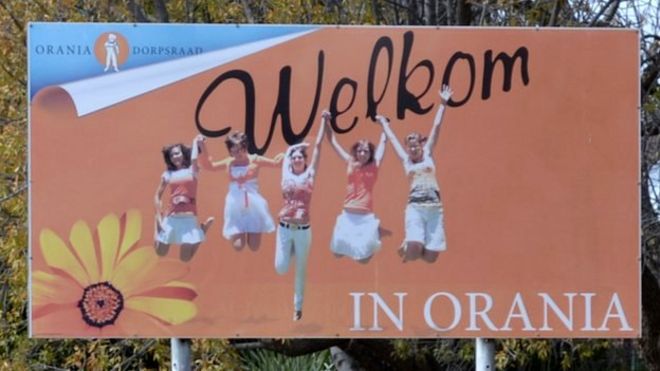The controversial town of Orania in northern Cape Town, South Africa, has succeeded in launching its e-currency called e-Ora to support its Ora currency which has been in circulation since 2004 and is equivalent to a South African Rand.

The unrecognized independent Afrikaner state seeks self-determination and the promotion of the Afrikaner culture which was brought to South Africa by Dutch settlers in the 17th century.
Orania, which has a population of about 1,500, is managed as a private company and has been called racist for not admitting black people despite its town council’s claim of not screening prospective residents based on race.
The e-Ora, also referred to as “White Coin” is a blockchain technology developed by South African financial services company, Efficient Group, and is issued and controlled by Orania’s central bank, The Orania Spaar en Krediet Kooperatiewe Bank (OSK).
The currency is a partnership between the Afrikaner town and award-winning economist Dawie Roodt who said he is aware that working with Orania is controversial but the opportunity was too exciting to turn down.
It would not have an expiry date like the ora and is expected to reduce the cost of printing the notes which is about 3 percent of the ora’s value, reports Wired. The cryptocurrency will be first issued on Quorum, an open source, private blockchain developed by J. P. Morgan and based on Ethereum.
Johannesburg-based tech firm Andile Solutions has developed a mobile wallet that will allow Oranians to use the e-Ora outside the town with the hope that it would be widely accepted and one day become accessible to all when it moves onto a public blockchain, cites Wired.
They can also trade digital currencies between smartphones which will also help to eliminate fees that apply to certain credit card transactions.
Some Oranians who are seeking a self-sufficient community told Wired that the blockchain technology could “not only free our bank accounts from nosy regulators but also assume some of the core functions of government, from issuing driver’s licenses to recording real estate transactions.”

Orania was established in 1991 by Afrikaner enthusiasts including the widow of apartheid-era South African Prime Minister Hendrik Verwoerd who purchased an abandoned town around the Orange River to start an independent Afrikaner state (Volkstaat).

Orania town is often described as the remains of Apartheid, a system of institutionalized racial segregation and discrimination in South Africa that existed between 1948 and 1991.
Critics accuse the town’s authorities of rejecting the Rainbow Nation concept and trying to recreate pre-democratic South Africa within a territory.
But residents of the town contend that their desire to isolate themselves is motivated by the need to preserve their linguistic and cultural heritage and protect themselves from the high rate of crime in the country.

They issued the Ora after the idea was first conceived in 2002 by renowned Professor Johan van Zyl who argued that “a community that intended to empower itself should have access to as many instruments as possible, including its own currency”.










